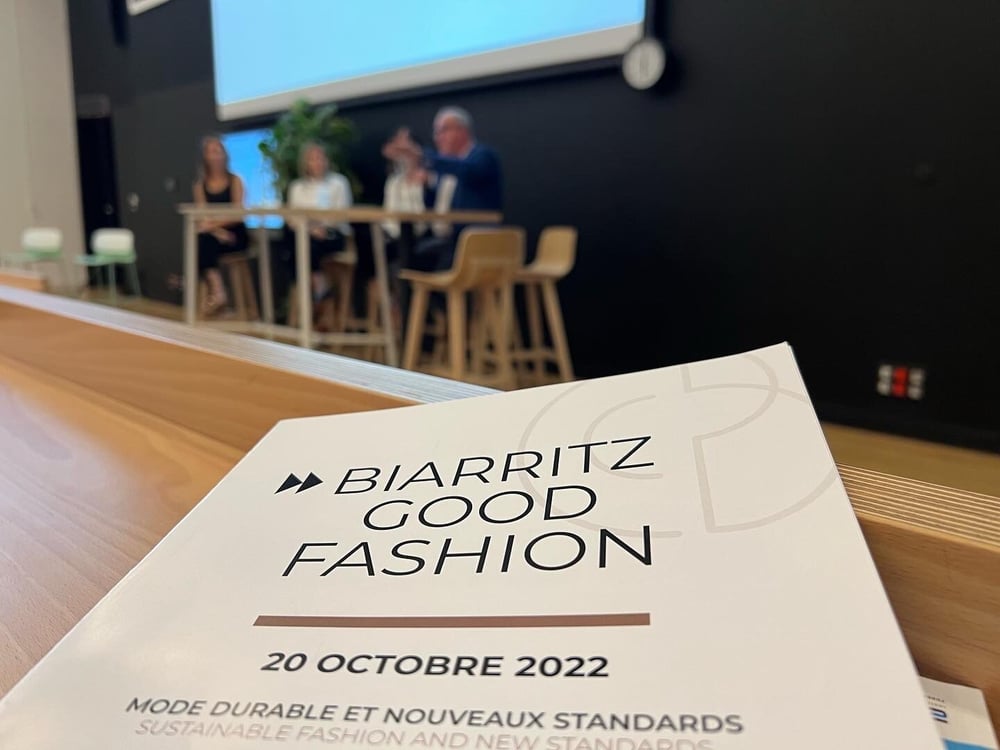
Since its inception in 2017, ESTIA’s BALI Chair brings together pioneering players who share a forward-looking vision of the challenges to be addressed for the future of the textile industry: regaining control over innovation to anticipate new consumer expectations. Can we achieve the objectives of a more sustainable, more local and more transparent fashion by 2030 as announced by the Fashion Pact in 2020? The initiatives seem to be accelerating, as proven by the two round tables that were held throughout the morning.
Around the first on the subject of the closed loop, a subject already launched 3 years ago on site, the idea is to show how we can remake new textiles with old ones. While the second announced: what new models to align value creation and sobriety issues?
The opportunity to hear Delphine Lebas (CSR Director of Petit Bateau), Gauthier Bedek (R&D Manager of the Eram Group) and Anna Balez (Co-founder and CEO of Lizee). While the latest study by Fashion For Good mentions that we would have already produced enough clothes to clothe ourselves until 2100, the actors of the platform show the importance of rethinking its business model and its logistics tool to reinvent the industry and create new circular businesses.
This is the case of Petit Bateau, which has just opened a pop-up shop in Paris dedicated to second-hand clothing and rentals, and which announced the launch of a new rental box for children’s clothing with Lizee. “The circular economy is transforming the business world. We’re living it and it’s impacting all our services,” says Delphine Lebas at Petit Bateau. We want to become the Netflix of baby clothes with this new rental box. To do this, our warehouses have been filled with ozone washing machines to rent out the clothes that we have collected, i.e. 160,000 pieces in 12 months. For us, this new service is proof of our sustainability.”
➔ Read the full article on Fashion Network
